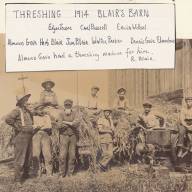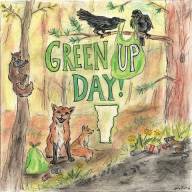To The Editor:
I know there is much in this world to rail against and protest these days. I’m writing to call attention to something right here close to home in the Green Mountains. It’s called the Telephone Gap Project proposed by the U.S. Forest Service and named to misrepresent what the project is about.
The Telephone Gap Project in Brandon calls for chopping down nearly 12,000 acres (way bigger than the size of the city of Burlington) of healthy, old growth forest. Many of the trees are 100 to 160 years of age and all of them have been quietly and diligently sequestering and storing carbon. Leaving old growth forests or proforestation, as it is called, many believe “serves the greatest public good by maximizing co-benefits such as nature-based biological sequestration and unparalleled ecosystem services such as biodiversity enhancement, water and air quality, flood and erosion control, public health benefits, low impact recreation and scenic beauty.”
Proforestation – leaving trees and allowing them to grow to their fullest potential – is a very effective, immediate, and low-cost approach to climate change, and we have a veritable gold mine in the way of carbon-dense biodiverse ecosystem right in Brandon.
The U.S. Forest Service, on the other hand, has a campaign underway to clear established forests to create early successional habitats -- also called young forests, pre-forests, or early seral or open habitats – with the intention of benefitting specific species. This is a very intense, aggressive, and costly management plan subsidized with our tax dollars. The plan is basically clear-cutting these stalwart trees and focuses more on short-term results and totally ignores the mitigation of climate change that proforestation offers to the greatest good.
A nationwide coalition of environmental organizations has denounced the Telephone Gap Project and it goes directly against President Biden’s call to preserve old growth forests to the benefit of the planet.
I encourage you to get more information on this at StandingTrees.org or Save Public Forests Coalition where you can submit comment to the U.S. Forest Service by March 13.
Callie Willis
Warren












